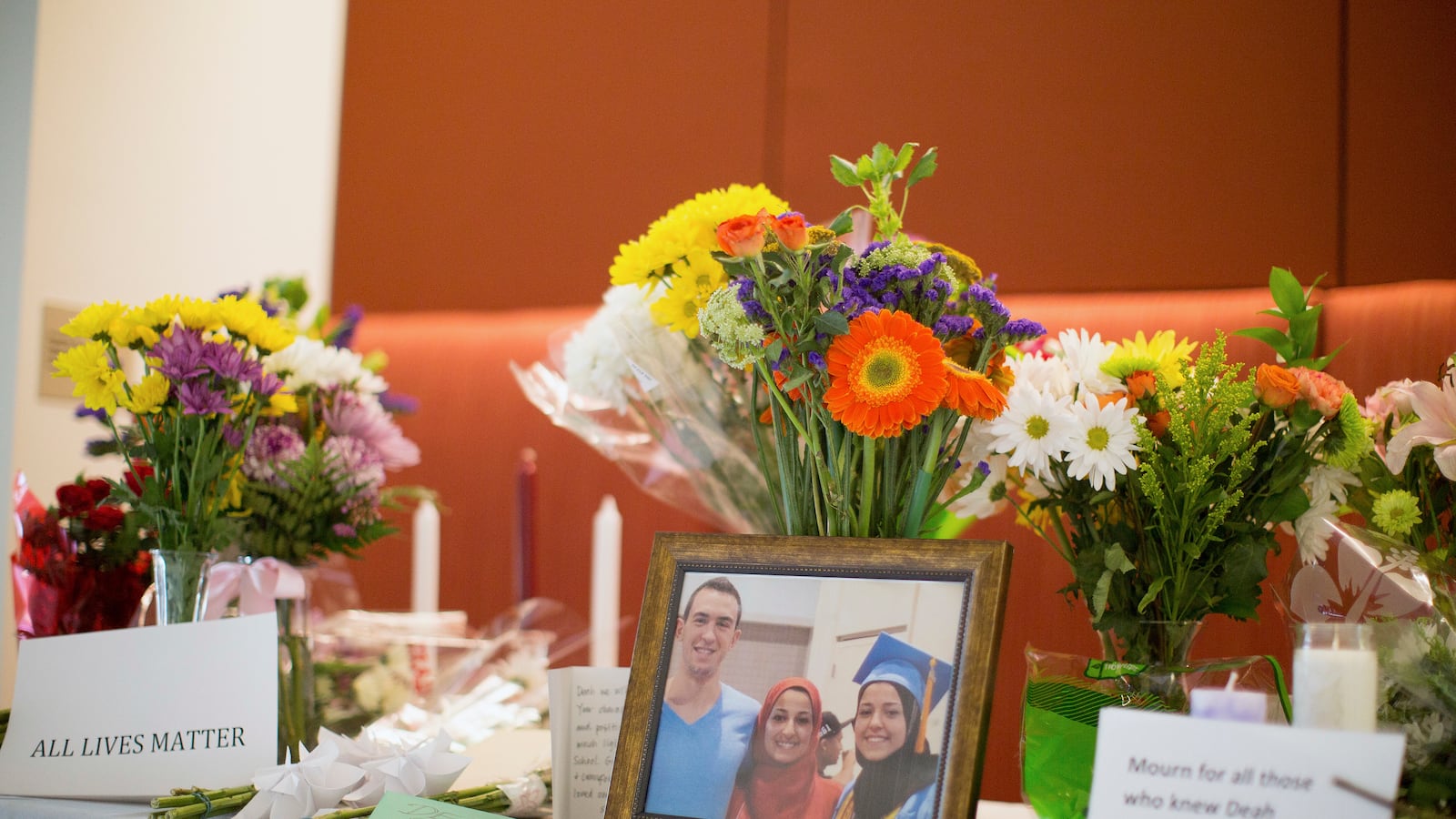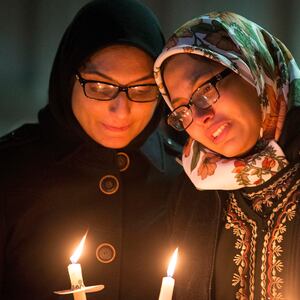A North Carolina man accused in the fatal shooting of three Muslim college students pleaded guilty on Wednesday, four years after the he turned himself into police.
Craig Stephen Hicks, 50, pleaded guilty in Durham Superior Court to three counts of first-degree murder for the Feb. 2015 shooting, just two months after the District Attorney’s office dropped their intention to seek the death penalty.
Prosecutors alleged Hicks fatally shot his downstairs neighbors—23-year old Deah Barakat; his 21-year-old wife, Yusor Abu-Salha; and her 19-year-old sister, Razan Abu-Salha—in Chapel Hill near the University of North Carolina campus, after allegedly getting into an argument over parking spaces.
“I've wanted to plead guilty since day one,” Hicks said to Durham Superior Court Judge Orlando Hudson when asked to enter his plea.
On Feb. 10, 2015, authorities alleged, Hicks, a former car-parts salesman, burst into the Barakat’s Chapel Hill condo and shot the 23-year-old several times as he stood in his doorway. His wife and her sister were shot “execution-style” in the head inside the condo, the medical examiner’s office determined. Authorities said a 911 called described hearing “over eight shots and screaming” during the mid-afternoon encounter. When officers entered the apartment around 5:15 p.m., Barakat was found lying in the front doorway, while the sisters were found in the kitchen. All three were pronounced dead at the scene.
“Our investigators are exploring what could have motivated Mr. Hicks to commit such a senseless and tragic act,” Chapel Hill Police Chief Chris Blue said at the time. “We understand the concerns about the possibility that this was hate-motivated and we will exhaust every lead to determine if that is the case.”
Chapel Hill police said the deadly attack was provoked over a competition for parking spaces at Finley Forest Condominiums, a housing complex for many UNC graduate students. Namee Barakat, the 23-year-old’s father, maintains the shootings were a hate crime, prompting a federal investigation currently underway.
“This is more than just about parking,” Barakat said at the time. “Three people get shot in the head. The death penalty would not be enough.” The 23-year-old’s mother, however, argued against the death penalty at the UNC vigil the day after the shooting, where a few thousand people reportedly attended. “He died of hate crime and his legacy is never hate,” Laya Barakat said. “You don't respond back by hating the other. You respond back by love. By peace, by mercy. That’s Deah’s way.”
Hours after the shooting, Hicks turned himself into police and was arrested. On Feb. 16, he was indicted by a Durham County grand jury on three counts of first-degree murder and one count of discharging a firearm into an occupied dwelling.
“I’ve semi-threatened them,” Hicks admitted to police at the time, according to footage placed in court Wednesday. “I just pulled my gun out and started shooting them. I walked over and shot her and the other one. Then I walked to my car and left."
Mohammad Abu-Salha, the two women’s father, testified at a congressional hearing on hate crimes in April, alleging the murder was racially fueled after Hicks, self-described as a “devout atheist,” had publically expressed hateful comments about Abu-Salha’s daughters wearing head scarves in observance of their faith.
“Three beautiful young Americans were brutally murdered, and there is no question in our minds that this tragedy was born of bigotry and hate,” Abu-Salha said before the U.S. House Judiciary COmmittee. “This has happened on too many occasions. Families like mine—regular Americans living regular lives—are left without hope that justice will truly be served.”
At the time of the shooting, Hick was studying to become a paralegal at Durham Technical Community College after his second divorce while Barakat was a second-year student in the UNC School of Dentistry. His wife of two months had plans to begin UNC dental school at UNC in the fall, her family said, and her sister was a sophomore at N.C. State University.







